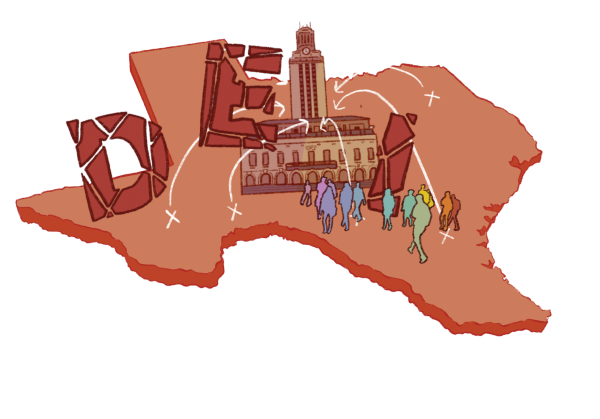The Reality of Owning a Small Business Amid COVID-19
May 12, 2020
The COVID-19 virus has been declared a global pandemic by the World Health Organization, with over 1,000,000 cases in the U.S. alone. Cities are being forced to go on lockdown and, as a result, many small businesses are being forced to shut their doors.
Some small businesses have been given a relief package by the United States government. However, in some cases, they need more help to keep from going bankrupt. Business owners are furloughing employees, with many taking from their savings. Restaurants are trying to retain customers by offering curbside pickup and deliveries and gyms are closing and resorting to online classes. Many businesses have declared bankruptcy, and over 22 million Americans are filing for unemployment.
Amalia Litras is one of the owners of GrassIron Fitness, a local CrossFit gym in Austin, Texas. Because of the pandemic, GrassIron had to temporarily close on March 20. As of April 28, it still has not been able to re-open.
“We’re optimistic that we’ll recover financially from COVID and continue to grow as a business,” Litras said. “We expect to be below our normal training volume for the remainder of 2020, but hopefully by January 2021 we’ll see an increase in our training volume and exceed our numbers from January 2020.”
Along with other businesses, GrassIron Fitness is forced to adjust. GrassIron Fitness is attempting to keep customers engaged by offering online classes. Litras said customers need to find a way to stay fit and stay healthy without the tools they are used to.
“Some of our clients have no fitness equipment, some have minimal equipment like a kettlebell and a couple of dumbbells and a handful has a complete set up [such as a] barbell power rack,” Litras said. “We’re designing programs specific to their fitness level and the equipment they have available. We’ve encouraged all of our virtual training clients to train on their normal day and at their normal time with the hope that this will help them to feel some sense of normalcy.”
Litras has said that customers are taking the virus very seriously, but even though they cannot gather for classes, they are still trying to maintain a community feeling. Litras said she thinks that the virus will trigger future changes as well.
“We’ve always prided ourselves on having an exceptionally clean gym,” Litras said. “In the future, we expect to make cleaning and sanitizing an even bigger focal point.”
Another industry that has felt the effects of the COVID-19 virus is the food industry. Afia foods is a Mediterranean food company. They own a food truck that serves Mediterranean food, but they also have frozen packages available in grocery stores such as HEB. Farrah Moussalati works at Afia foods, and she says that the pandemic is having a dramatic effect on their business.
“The biggest impact it has had on our business is supply chain issues,” Moussalati said. “Meat prices have skyrocketed, and there are supply issues which in turn affect our production. We have a couple of other ingredients we are struggling to procure due to this pandemic.”
Afia is also making adjustments, according to Moussalati. They have even begun working with the Texas Central Food Bank to donate over 1000 bags of Falafel (15,000 Falafels) to those in need and will continue to support the food bank in the future.
“Employee safety is the most important factor for Afia, ensuring all employees are healthy and safe, checking temperatures, filling in employee health logs, cleaning and sanitizing more often than before and ensuring employees are at a safe distance from one another,” Moussalati said. “We are thankful and grateful that we are still able to employ and support our employees during this time. They are our frontline workers and heroes, and they are at our facility working to feed thousands of Texans. Ecommerce wasn’t on our expansion plan, but now we are working on plans to include this in our business model.”
While the pandemic has created many challenges for Afia, Moussalati said in some ways they are benefitting because of it. For example, foods that last a long time are currently in high demand, making Afia’s frozen food packages more popular.
“We sell our products to HEB all over Texas,” Moussalati said. “They come frozen, ready-made and are at a great price point and convenient for everyone who is staying at home and keeping safe. People need to eat during these times and many have turned to cooking at home more than before, so the demand for our products has increased. We are looking into ways to increase our online presence as many consumers are turning to purchase their groceries online.”
Monica Caivano is the co-owner of Esquina Tango, a non-profit organization that promotes Latin American culture. Their instructors teach tango, salsa, bachata and languages. Esquina Tango was forced to close on March 13.
“[We are] committed to continuing to offer our activities to the community,” Caivano said. “Only five days after closing we had already begun our online live classes and scheduled an Esquina Town meeting to discuss how to proceed.”
Esquina Tango is also making other changes. They now offer free online classes, though people are encouraged to donate.
“Most likely we will have to limit the number of people that come to our classes for some time,” Caivano said. “We will have to have a strict health and cleaning protocol”.
It is uncertain what the future looks like for many of these businesses, Moussalati said. Business owners such as Moussalati are saying they are finding new ways to support each other along with customers.
“We are all in this together, and the Texan community is a very supportive community,” Moussalati said. “I believe that we can face any obstacle that comes our way through unity, and the community here in Austin has done a terrific job in uniting and supporting one another.”










